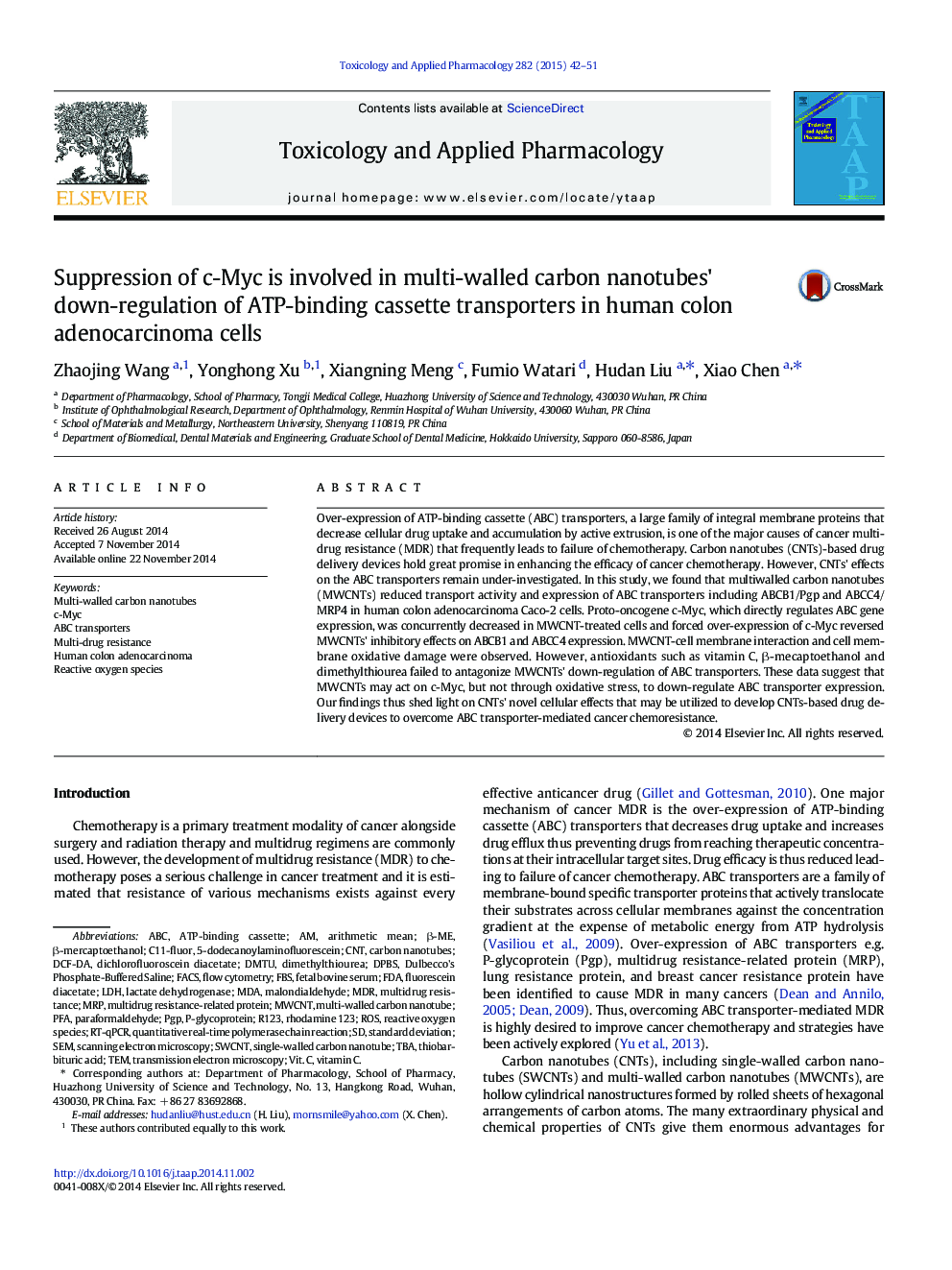| Article ID | Journal | Published Year | Pages | File Type |
|---|---|---|---|---|
| 2568489 | Toxicology and Applied Pharmacology | 2015 | 10 Pages |
Over-expression of ATP-binding cassette (ABC) transporters, a large family of integral membrane proteins that decrease cellular drug uptake and accumulation by active extrusion, is one of the major causes of cancer multi-drug resistance (MDR) that frequently leads to failure of chemotherapy. Carbon nanotubes (CNTs)-based drug delivery devices hold great promise in enhancing the efficacy of cancer chemotherapy. However, CNTs' effects on the ABC transporters remain under-investigated. In this study, we found that multiwalled carbon nanotubes (MWCNTs) reduced transport activity and expression of ABC transporters including ABCB1/Pgp and ABCC4/MRP4 in human colon adenocarcinoma Caco-2 cells. Proto-oncogene c-Myc, which directly regulates ABC gene expression, was concurrently decreased in MWCNT-treated cells and forced over-expression of c-Myc reversed MWCNTs' inhibitory effects on ABCB1 and ABCC4 expression. MWCNT-cell membrane interaction and cell membrane oxidative damage were observed. However, antioxidants such as vitamin C, β-mecaptoethanol and dimethylthiourea failed to antagonize MWCNTs' down-regulation of ABC transporters. These data suggest that MWCNTs may act on c-Myc, but not through oxidative stress, to down-regulate ABC transporter expression. Our findings thus shed light on CNTs' novel cellular effects that may be utilized to develop CNTs-based drug delivery devices to overcome ABC transporter-mediated cancer chemoresistance.
